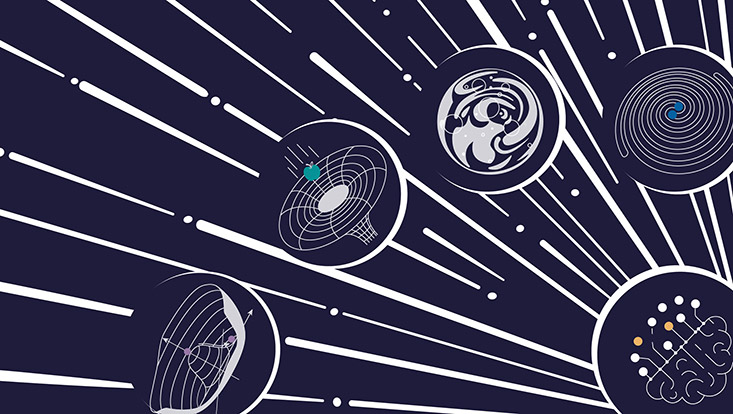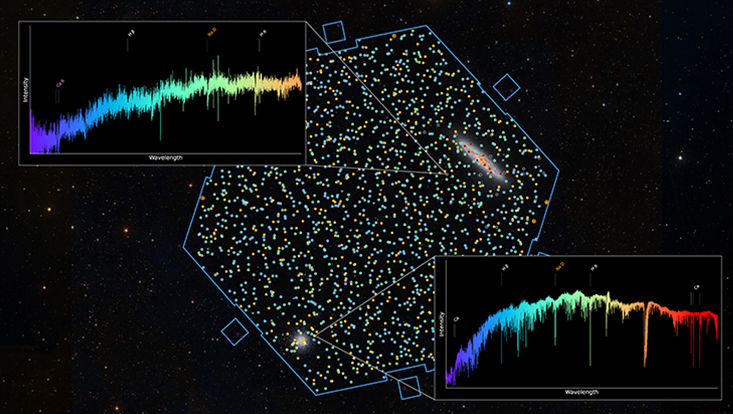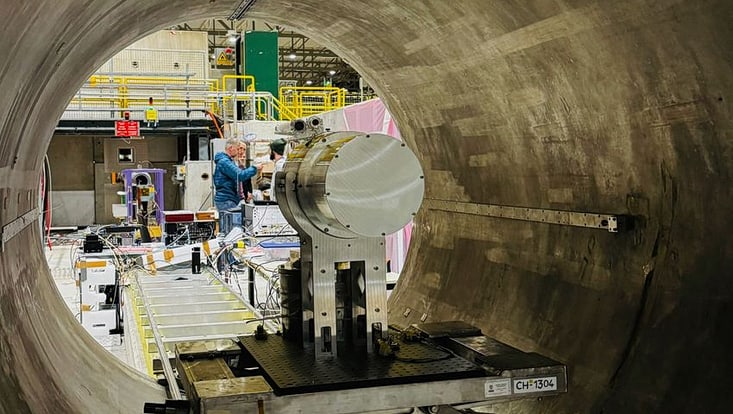Positive decision by the DFG and the German Science and Humanities CouncilSecond funding period for Quantum Universe
22 May 2025

Photo: UHH
The Quantum Universe Cluster of Excellence at the University of Hamburg in collaboration with the DESY research center will receive funding for another seven years. The German Research Foundation (DFG) and the German Science and Humanities Council (Wissenschaftsrat, WR) announced the positive decision on further funding for the cluster as part of the Excellence Strategy of the German federal and state governments at a joint press conference today.
At the Quantum Universe Cluster of Excellence, around 300 scientists are researching the development of the universe from its origins to the present day. A particular focus is on gaining a better understanding of mass and gravity at the interface between quantum physics and cosmology.
“We are delighted to receive this positive decision today at the end of a very competitive selection process! It is great that the excellent research of all the scientists involved in the Cluster has been rewarded with a second funding period for Quantum Universe,” says Cluster spokesperson Prof. Dr. Erika Garutti. The particle physicist and expert in detector development has headed the Cluster of Excellence since mid-2022 together with her co-spokespersons, cosmologist Prof. Dr. Géraldine Servant and string theorist Prof. Dr. Timo Weigand.
For its second term, the Cluster of Excellence has set itself the goal of making a significant contribution to answering the major unanswered questions about the development and nature of the universe: What is dark matter made of? Where does the asymmetry between matter and antimatter come from? What caused the accelerated expansion of the universe? How can gravity be described quantum mechanically and by which mathematical structures?
Over the next few years, the Quantum Universe researchers at the University of Hamburg and DESY will increasingly focus on the physics of the Higgs particle and its significance for the development of the universe, as well as for dark matter and gravitational waves. The cluster is also a leader in the development of technology for next-generation gravitational wave detectors and benefits significantly from synergies between experiments on dark matter and gravitational waves. Progress in quantum gravity is to be achieved through new ideas in theoretical physics in combination with modern mathematical structures. And in order to process the flood of new data from experiments and theory more efficiently, the researchers are developing innovative methods using artificial intelligence.
“We have big plans for the next seven years and can build on the successes from the first term of the Cluster of Excellence,” says Garutti. “Today we can take a deep breath and celebrate the positive decision on the future of the project!” A success that would have been impossible without the cluster's numerous young researchers in particular, adds Garutti.

